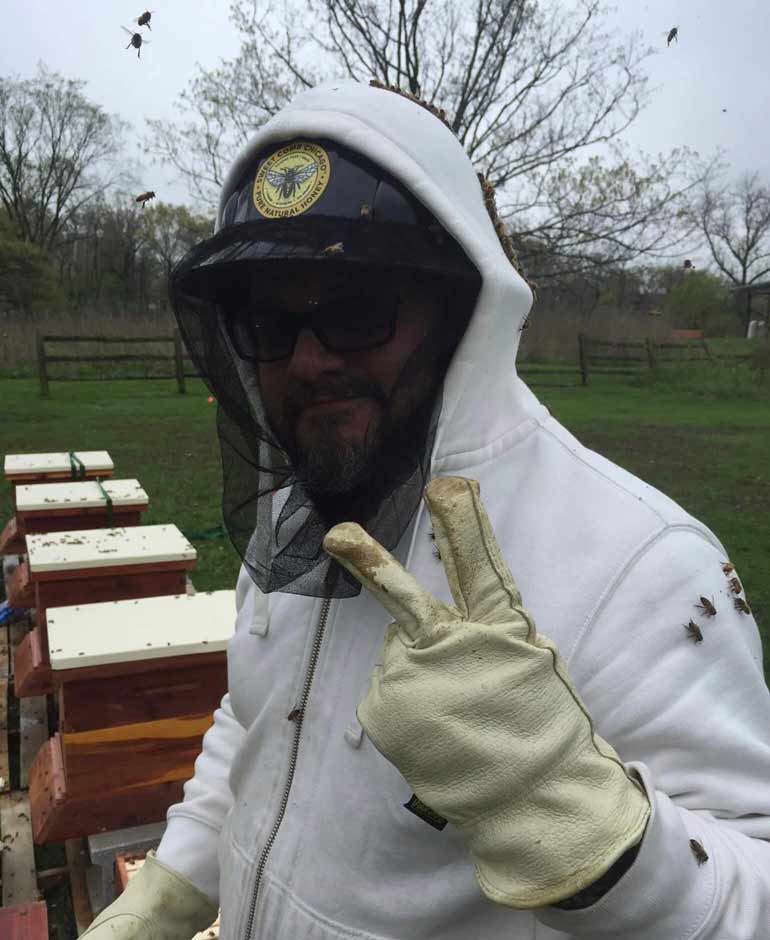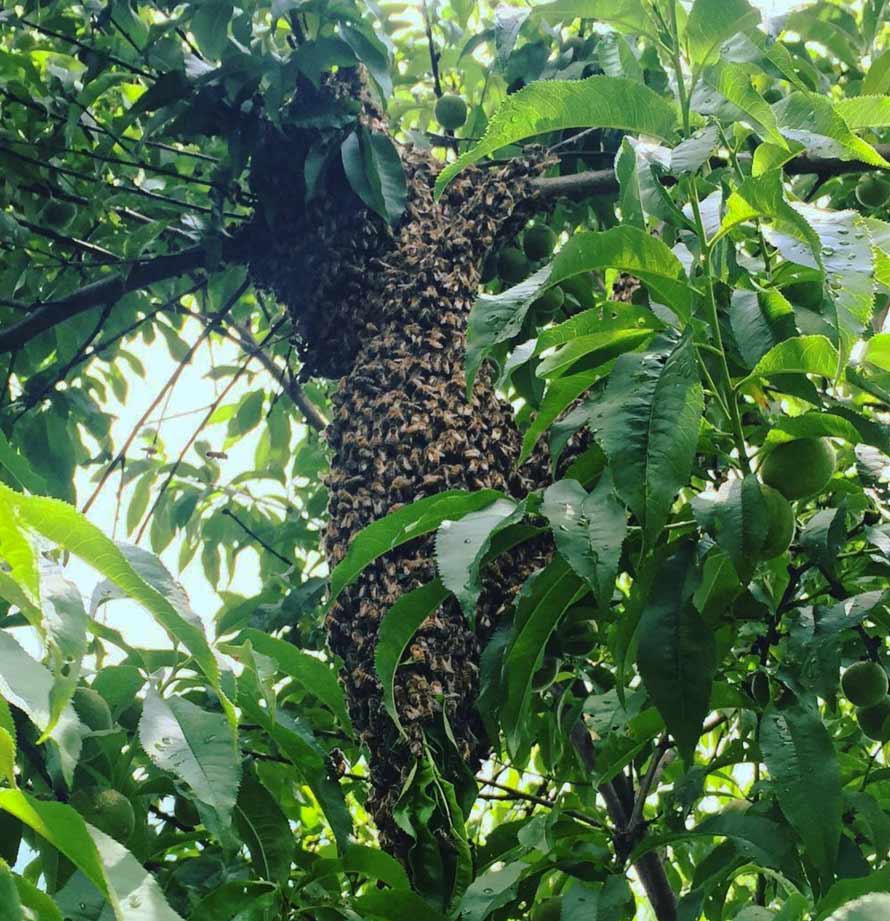About Sweet Comb Chicago

Saving Bees, One Hive at a Time
Ever wondered about the reason behind the name Sweet Comb Chicago?
It all began when, upon reading about the plight of bees and Colony Collapse Disorder, I felt compelled to take action.
Beekeeping was something that had always intrigued me, but, like many, I considered it impractical to keep bees in the city. However, I realized that while there are many things in the world I cannot change, this was an issue where I could make a difference.
Our Mission: Caring for Bees
These days, I’m a bit over-protective of my bees and on the verge of breaking out cigars every time I see the familiar small swarms outside the hive that suggest orientation flights of new bees.
It’s been said that 1 out of every 3 mouthfuls of food we consume is made possible by pollinators like bees and it is certain that some crops are pollinated exclusively by bees.
Sweet Comb Chicago was established in a North side backyard in the Rogers Park neighborhood of Chicago.
We care about the bees
The idea behind our apiary is simple: to help bees by providing them with a diverse range of nectar, away from the monocultures created by big industry.
We have been continually amazed and captivated by the bees as we watch them go about their daily tasks in our own backyard.
Chicago is one of the few places where the number of honeybees seems to be increasing slightly, thanks to backyard and rooftop beekeepers.
With your support, we would like to do our part to ensure that this trend continues, so please do your best to support local beekeepers.


Did you know that most of a colony is made up of female bees?
Is it surprising to learn that the majority of a colony consists of female bees? In fact, all of the workers are female.
Worker bees live 6 weeks in the summer months, and 4–9 months during the winter months, while the queen bee can live for 5 years. During the busy summer months the queen will lay 2500 eggs per day.
She can control whether she lays female or male eggs. Eggs she fertilizes become female. In other words, male bees inherit genes only from their mothers, while female worker bees inherit genes from mother and father.
Drones or male bees are larger and have no stinger. They do no work and are cared for by the females at least until fall.
There are many things in the world we cannot change, but this is a problem I can actually do something about.
We Do It For The Bees!
It’s difficult to know where to begin when considering the importance of bees, and the challenges these beautiful little creatures are faced with.
Unfortunately, even small amounts of the chemicals found in pesticides can be harmful to a colony over time and can be a major factor contributing to Colony Collapse Disorder.
Harmful parasites, such as mites, combined with chemical exposure, are greatly reducing the number of bees available to carry out their important function. In addition to producing honey and beeswax, bees pollinate the plants that produce fruits, vegetables, and nuts worldwide.
While the population has been dwindling for years, the bee shortage is reaching alarming proportions. In fact, some experts predict a global food production crisis. The situation has worsened and farmers have started “renting” bees to pollinate crops, paying beekeepers to put hives on their farms.
Join us and help us save the bees.
Martin Lopez
Founder – Sweet Comb Chicago